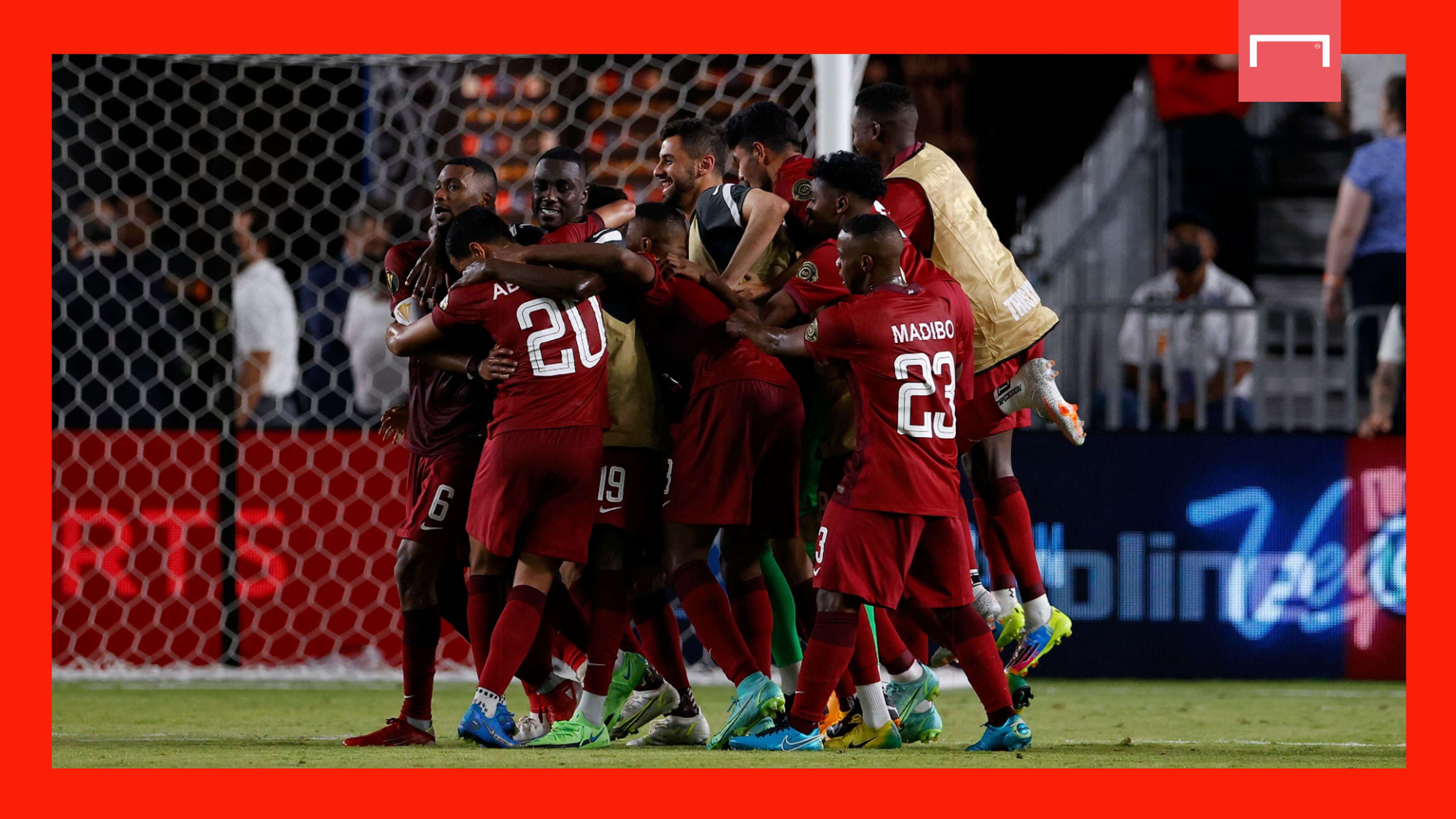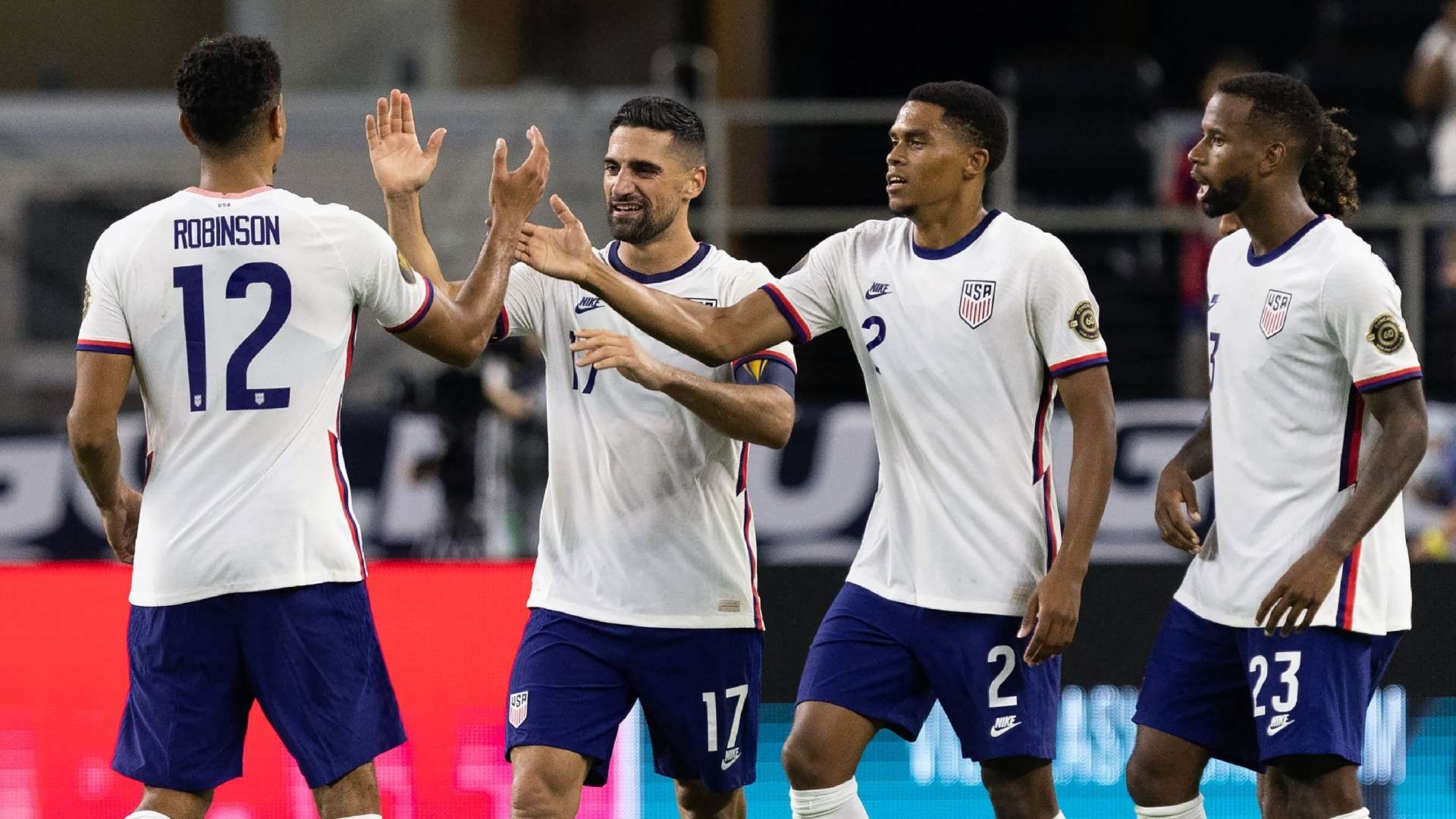Only one team stands between the U.S. men's national team and a Gold Cup final against a rival. Just one opponent can keep the U.S. away from a match against Mexico or Canada and a chance to continue an ascent back to the top of CONCACAF.
That opponent is, of course .... Qatar?
If you haven't followed the Gold Cup too closely, you'd likely be confused as to how Qatar got here in the first place. They're certainly not a North American team nor do they fit the profile of high-profile guest teams like Brazil, Colombia, Peru and South Korea that joined the tournament from 1996 to 2005.
But here Qatar are as a deserved semifinalist, a team that has arguably been the most dynamic and fun-to-watch in this summer's tournament. And so the U.S. faces a different type of game, one against an unfamiliar opponent that entered this tournament with their own hopes and motivations before exceeding almost everyone's expectations once a ball was kicked.
In some ways, they're a perfect foil to the USMNT as constructed for this summer's tournament. While the U.S. is an inexperienced group looking to prove themselves worthy of joining the A-Team, Qatar is a team that has spent the last several years playing any top team willing to welcome them.
Next Match
They've won the AFC Asian Cup, played in a Copa America and now a Gold Cup, building themselves around a group of familiar players from Al-Sadd and Al-Duhail. Think of it like how Spain's title-winning team was built around Barcelona and Real Madrid or how Germany are so influenced by Bayern Munich, although obviously at a different scale.
"They're basically represented by two club teams," said Gregg Berhalter, who visited the country and toured its facilities in 2019. "Having an inside look on what they do, they almost operate like a club team. The guys come to Aspire to do regen every week. After their club team games, they all meet up together and do regeneration in their facility.
"They get to spend time with each other, look at the games, analyze it. It's a really unique model and I'm excited to see how they play in the World Cup, because they really have a blueprint for how to prepare. With playing in the Copa America, playing in European qualifying, playing in the Gold Cup, they really have gotten a sample of the entire world, basically."
 Getty/Goal
Getty/Goal
The other key difference? Style.
The U.S. has proven pragmatic throughout this tournament, conceding just one goal from games against Haiti, Martinique, Canada and Jamaica. Led by the likes of Miles Robinson, James Sands and goalkeeper Matt Turner, the U.S. has done just enough each game to take control and, most importantly, advance.
With a plus-eight, the U.S. has the best goal difference in the tournament, even if it hasn't always been sexy. There have been good performances a long the way, most notably wins a lopsided win over Martinique, but the U.S. has focused more on controlling games rather than opening them up.
"I hear some of the comments about, 'Oh they're not playing great,' or 'It's not the best roster this and that'," Berhalter said. "That doesn't concern me at all. What concerns me is the output and the energy that the guys are playing with and the commitment that the guys are playing with.
"We've given up one goal so far in this tournament. We're in the semifinals now with this young group and the resiliency that they play with is a great example to the whole entire player pool that, when we step on the field, we want to win games."
Qatar, meanwhile, have been a bit more free-flowing. They've scored a tournament-high 12 goals in four games thanks to a free-flowing counterattack. Almoez Ali leads the tournament with four goals, while Abdulaziz Hatem is one of six players to have scored three times during the tournament.
But, while those goals have been scored in bunches by Qatar, they've also conceded in bunches too. Their first game was a 3-3 draw with Panama while their quarterfinal win over El Salvador saw them nearly squander a three-goal lead late.
"I think two things that I'm seeing with Qatar right, the first thing is that they've been scoring goals," Berhalter said. "They've also been conceding goals but they have an exciting game model.
"It's heavily based on offensive transition. They haven't had the majority possession in three of their four games, but they're deadly on the counter-attack, they have creative players."
 Getty/Goal
Getty/Goal
Qatar's style, realistically, is one that the U.S. is ready for. Berhalter pointed to their tournament games so far, all of which have come against counter-attacking teams. Every opponent has tried to counter the U.S. so far this summer, and each has failed.
And so the U.S. now faces what many would see as a trap game. For a young team, it would be easy to look ahead to a potential final against a rival. It would also be easy to look back at big wins over the likes of Jamaica and Canada while patting yourself on the back.
Thursday's game is the USMNT's first-ever against Qatar and, if all goes to plan, maybe it won't be the last with the 2022 World Cup on the horizon. But that's for another day.
As much as anything Thursday is about managing the moment and not looking past it.
"You can run into problems when something doesn't go your way or something's unexpected. It's how you cope with," said midfielder Paul Arriola.
"I think the way that we've been able to deal with that and deal with the adversity so far in this tournament, it has given us a lot of confidence going forward.
"So, regardless of how we might start the game if it doesn't go our way or if our plan isn't working, I'm really confident in this group to be able to grind out a result and if everything goes great, same thing. I think we'll be in good hands."


